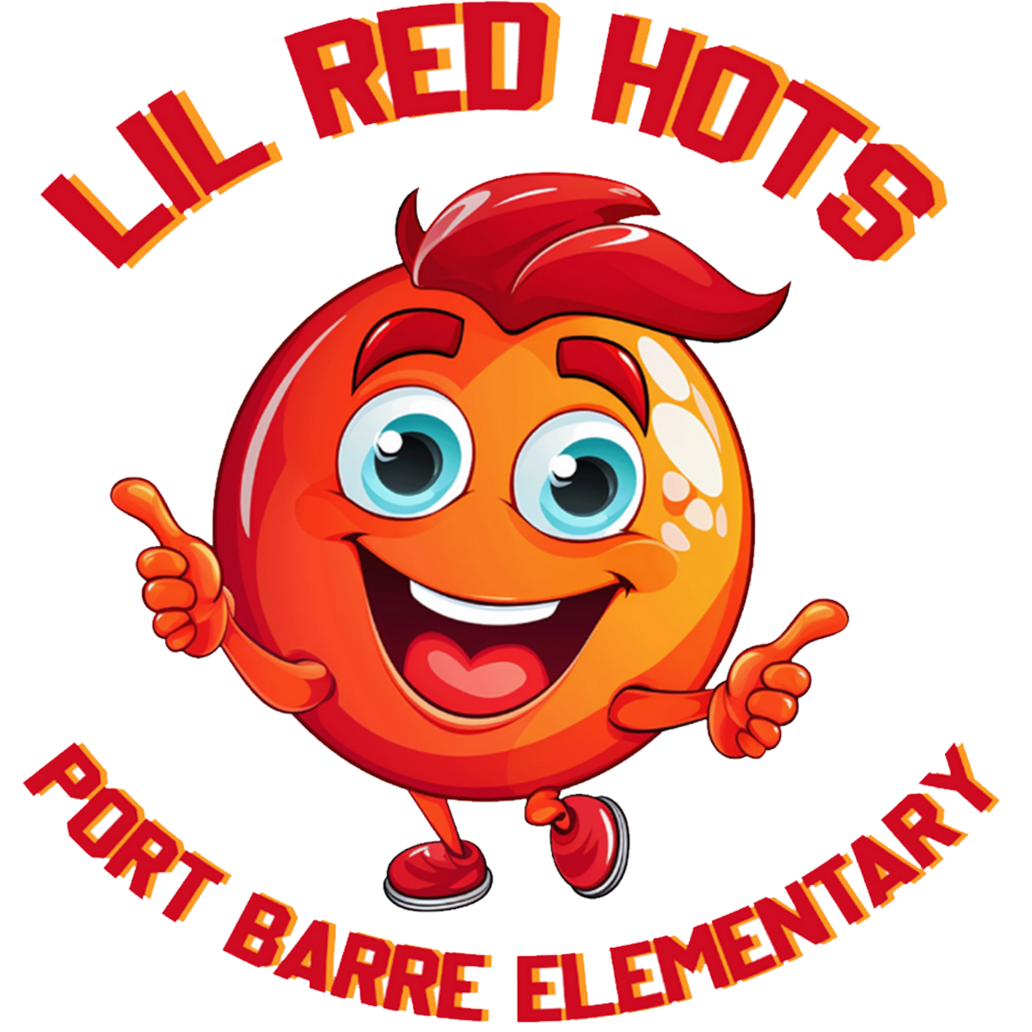The PBE Lil Red Hots celebrated Valentine’s Day in style Friday. Our hearts are full (and their candy bags are, too)!
Happy Valentine’s Day to all! ❤️🔥
#LilRedHots #VDay #PBEPride
Happy Valentine’s Day to all! ❤️🔥
#LilRedHots #VDay #PBEPride

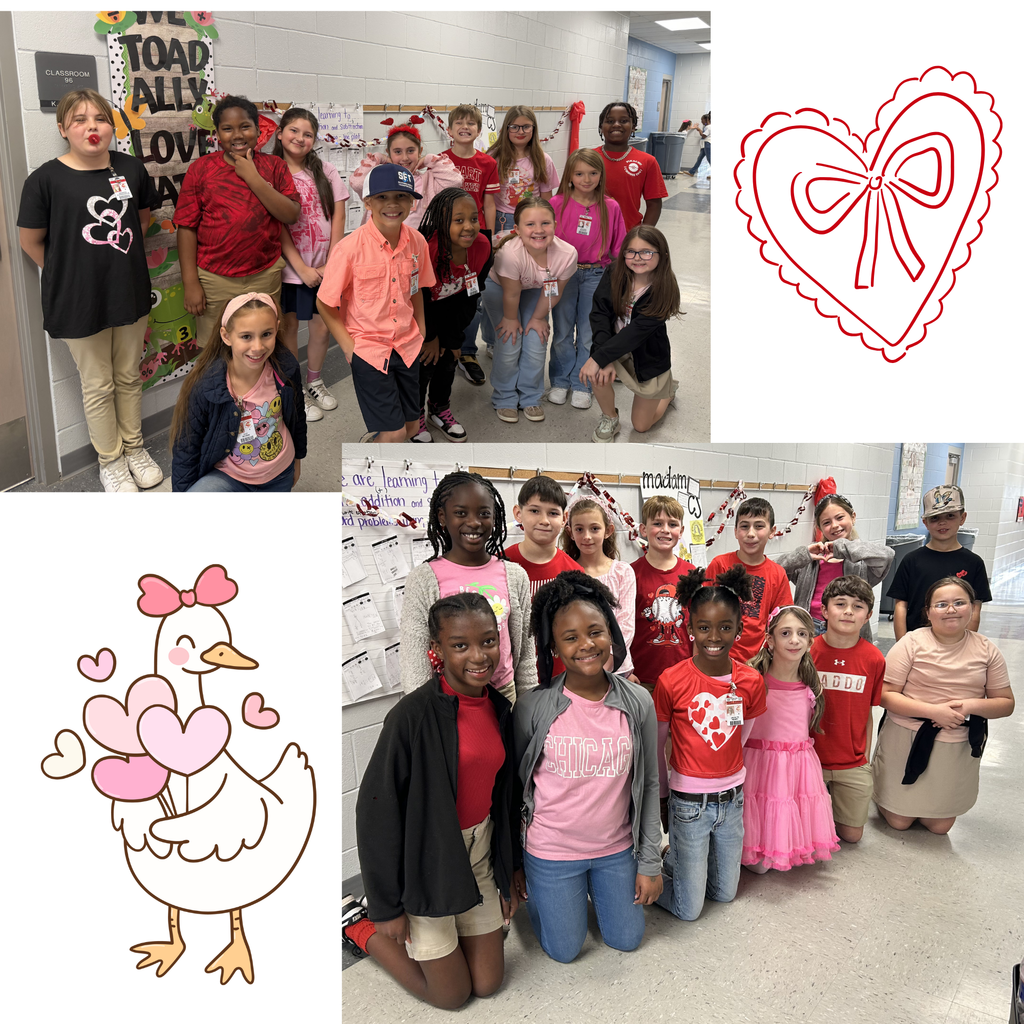
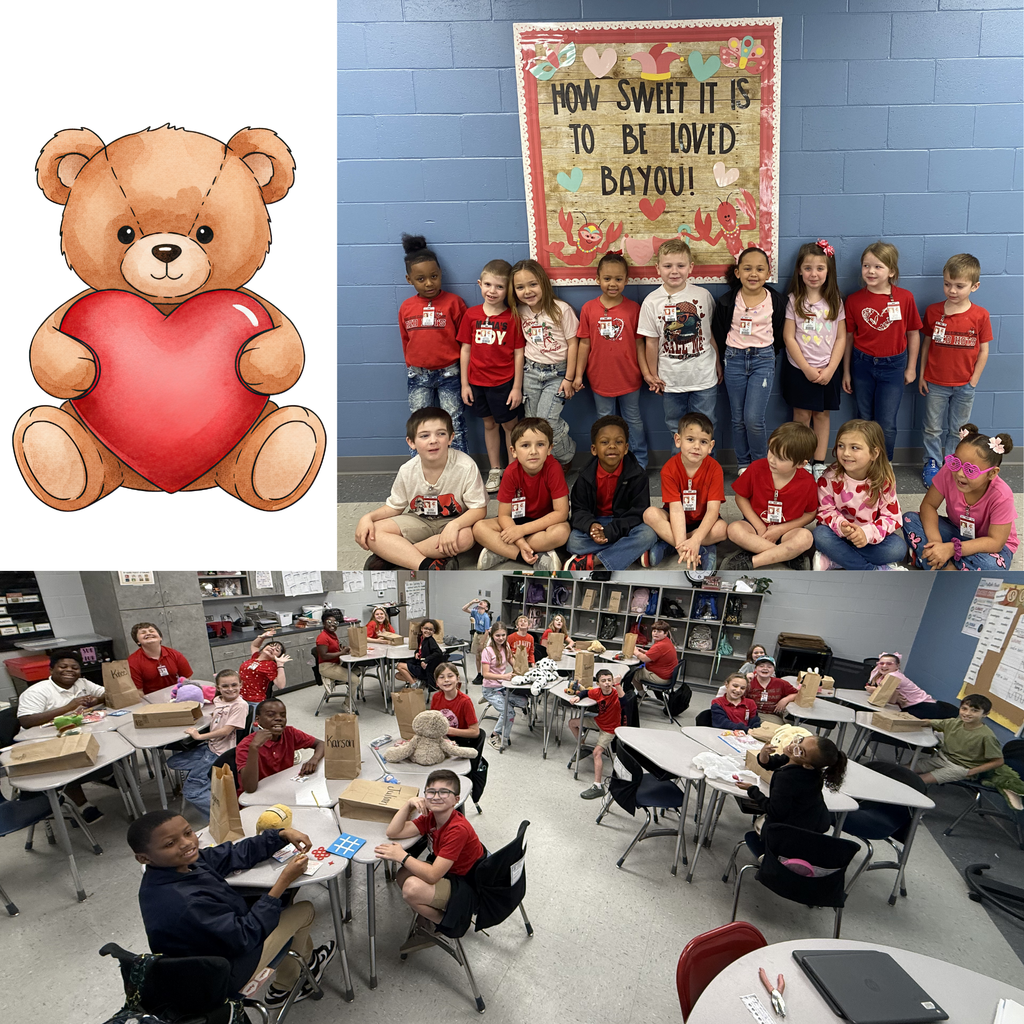

Port Barre Elementary Lil Red Hots let the good times roll last Thursday while celebrating Mardi Gras!






💗2nd and ♥️ 3rd Grade students celebrated Valentine's Day in Art Class with Mrs. Cat last week by learning how to make paper hearts and bees! Check out their adorable artwork!

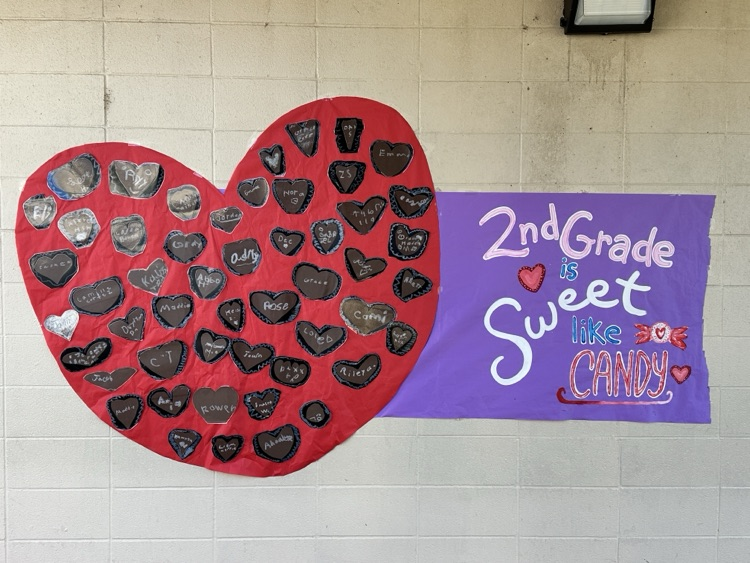
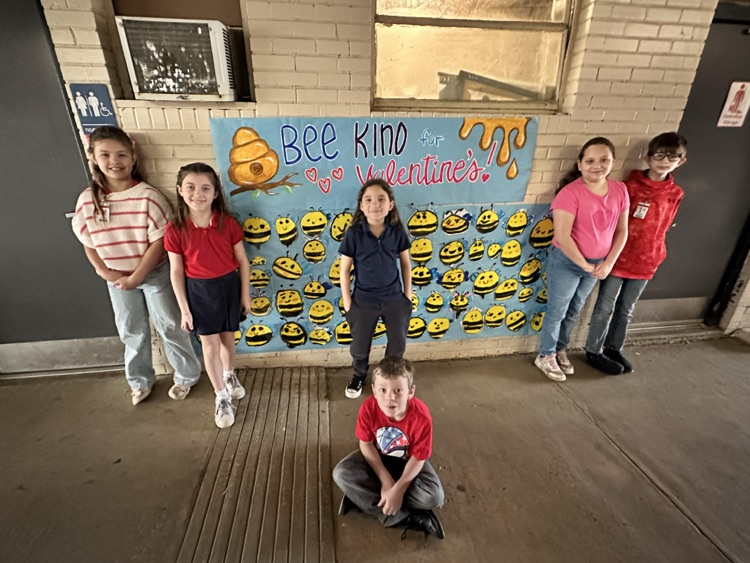
💜💛💚❤️🤎
Our PBE Staff had a SWEET time celebrating Mardi Gras and Valentine’s Day last week!
We enjoyed delicious king cake from Twins and heart-shaped brownies to top it all off.
Thank you to our amazing staff for all you do each and every day for our Lil Red Hots. We hope the treats were a small reminder of how much you are appreciated and loved!
#PBEProud #LilRedHots #MardiGrasFun #FeelingTheLove

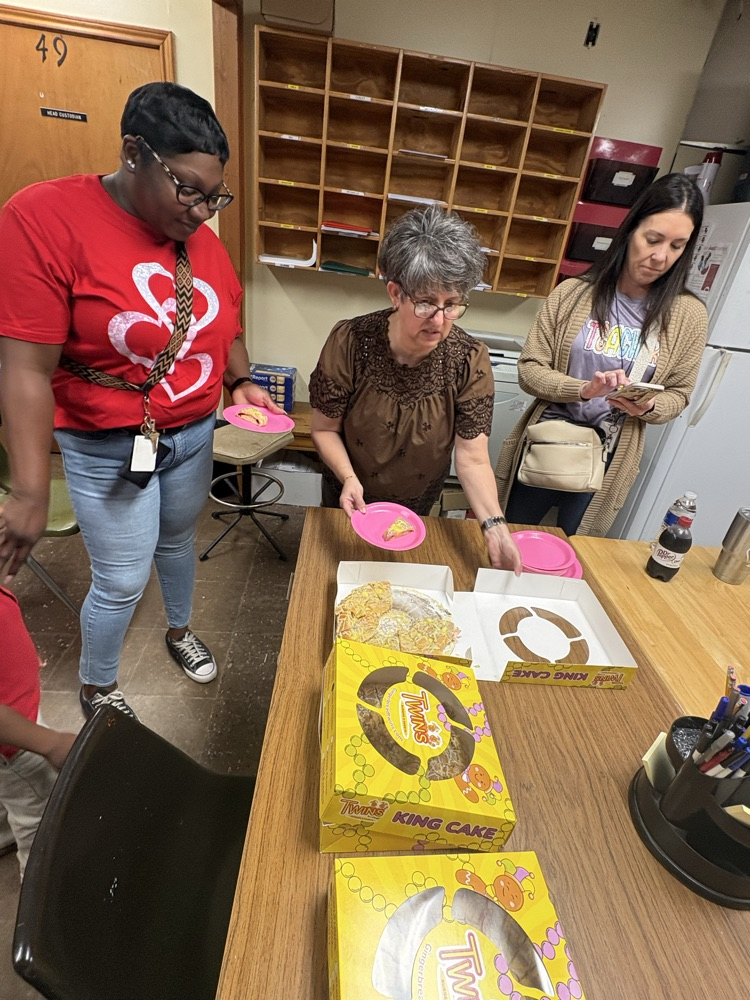
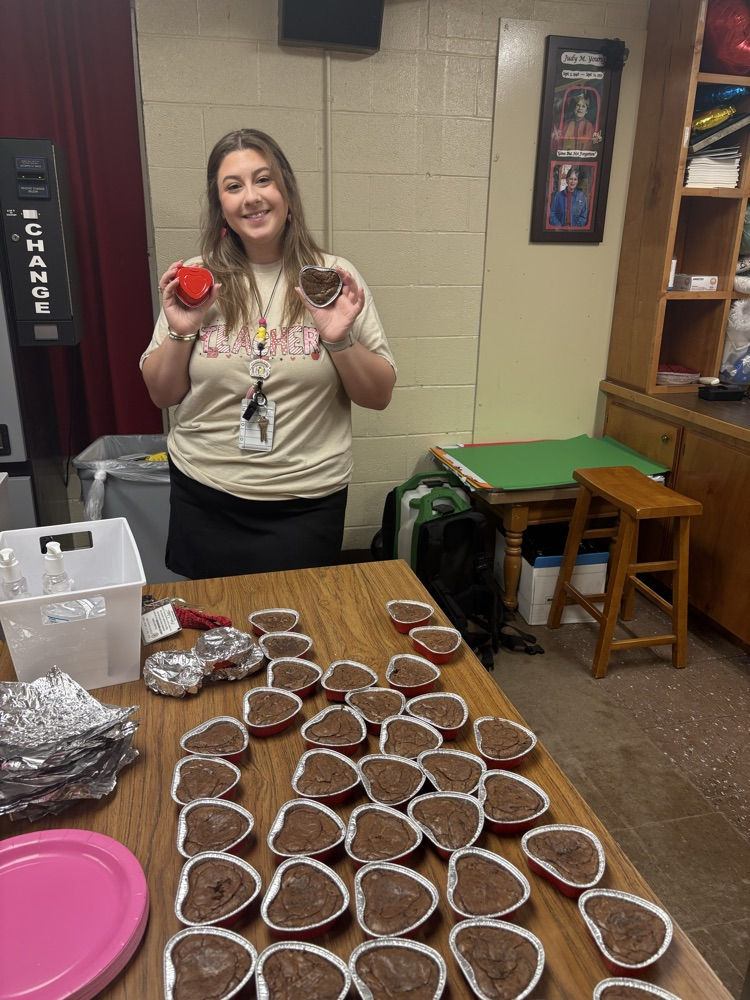

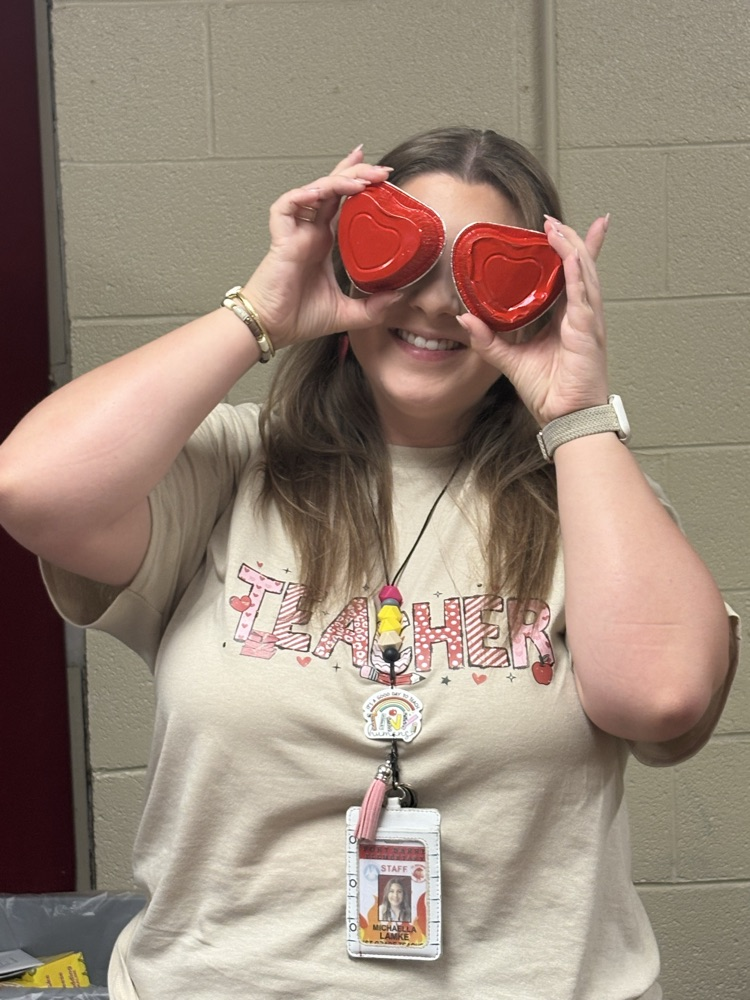


Happy Mardi Gras, St. Landry Parish! 🎭💜 Whether you’re out catching beads or enjoying a quiet day off, we wish all of our students, staff, and families a wonderful and safe holiday. Let the good times roll! 🎷✨

Today, we join the nation in celebrating Presidents' Day. 🇺🇸
On this February 16, we reflect on the history of the American presidency and the leaders who have guided our country through its most defining moments. It’s a day to honor the office and the enduring principles of leadership and service.
On this February 16, we reflect on the history of the American presidency and the leaders who have guided our country through its most defining moments. It’s a day to honor the office and the enduring principles of leadership and service.

Today is National School Resource Officer Appreciation Day, and we want to share a huge thank you with the dedicated officers of St. Landry Parish! 💙
Today, we recognize the vital role they play in fostering a secure and supportive atmosphere in our schools. Please join us in showing them some appreciation! 👮♂️🤝👮♀️
Today, we recognize the vital role they play in fostering a secure and supportive atmosphere in our schools. Please join us in showing them some appreciation! 👮♂️🤝👮♀️

Keep your child thinking wherever you are
When you are doing errands or stuck in traffic, keep your child's brain working with thinking activities. At the supermarket, for example, ask your child to point out all the orange items, or everything that costs more than two dollars but less than three. In the car, ask your child to find signs with the letter J or an exclamation point in them. Ask questions that require thought, too: "What do you think might happen if we…?"
https://tpitip.com/?16bO17376
When you are doing errands or stuck in traffic, keep your child's brain working with thinking activities. At the supermarket, for example, ask your child to point out all the orange items, or everything that costs more than two dollars but less than three. In the car, ask your child to find signs with the letter J or an exclamation point in them. Ask questions that require thought, too: "What do you think might happen if we…?"
https://tpitip.com/?16bO17376
Happy Valentine’s Day, St. Landry Parish!💌 Whether you're celebrating with friends, family, or classmates, we hope your day is as sweet as a box of chocolates!🍫💖

Ask this question when your child gets home
When your child gets home today, try asking the same question Nobel Prize-winning physicist Isidor Rabi's mother asked him: "Did you ask a good question today?" Encourage your child to think about what's being taught in class. What questions does your child have about how a concept works or connects to another idea? Rabi credited his mother for his becoming a scientist; her daily query prompted him to ask thoughtful questions.
https://tpitip.com/?16bN17376
When your child gets home today, try asking the same question Nobel Prize-winning physicist Isidor Rabi's mother asked him: "Did you ask a good question today?" Encourage your child to think about what's being taught in class. What questions does your child have about how a concept works or connects to another idea? Rabi credited his mother for his becoming a scientist; her daily query prompted him to ask thoughtful questions.
https://tpitip.com/?16bN17376
PBES Bus notice: This is a reminder that Bus 564 (Mrs. Kelly) and Bus 600 (Mr. John) will NOT be running this AFTERNOON, Friday (2/13). In order to ensure student safety and a smooth dismissal, we ask that you join the car rider line to pick up your child(ren).
Reward positive effort with a weekend surprise!
Tell your child you've planned something special for the weekend, but don't say what it is. Let imagination build the excitement. After dinner, ask everyone to get into pajamas. Then, build a fort with pillows, chairs and blankets. Pop popcorn and put pieces of cut-up fruit on sticks. Stay up late reading, playing board games and eating your treats. In the morning, serve your child's favorite breakfast.
https://tpitip.com/?16bM17376
Tell your child you've planned something special for the weekend, but don't say what it is. Let imagination build the excitement. After dinner, ask everyone to get into pajamas. Then, build a fort with pillows, chairs and blankets. Pop popcorn and put pieces of cut-up fruit on sticks. Stay up late reading, playing board games and eating your treats. In the morning, serve your child's favorite breakfast.
https://tpitip.com/?16bM17376
Students are invited to celebrate Valentine’s Day by wearing a Valentine’s-themed shirt or a red or pink shirt on Friday, February 13, 2026.👕 Shirts may be worn for free with regular school uniform bottoms.👖 Jeans may be worn for $1.00, unless you have already paid for the year.
Let’s spread the love and school spirit! 💕
Let’s spread the love and school spirit! 💕
Proper behavior makes school buses safer
Misbehavior on the school bus can affect everyone's safety. Remind your child that you expect respectful behavior toward the bus driver and others on the bus. Your child should follow the bus driver's instructions and treat the bus and all school property with care. Expect your child to follow these rules in the family car, too. If you need to, pull over in a safe place and wait until everyone is behaving properly before you resume driving.
https://tpitip.com/?16bL17376
Misbehavior on the school bus can affect everyone's safety. Remind your child that you expect respectful behavior toward the bus driver and others on the bus. Your child should follow the bus driver's instructions and treat the bus and all school property with care. Expect your child to follow these rules in the family car, too. If you need to, pull over in a safe place and wait until everyone is behaving properly before you resume driving.
https://tpitip.com/?16bL17376
PBES Bus notice: Bus 564 (Mrs. Kelly) and Bus 600 (Mr. John) will NOT be running in the AFTERNOON on Thursday (2/12) or Friday (2/13). They will run their morning route on each of these days. Please make arrangents to pick up your students on these afternoons. We are sorry for the inconvenience.
Students are invited to wear a Mardi Gras–themed shirt or a purple, gold, or green shirt on Thursday, February 12, 2026 to celebrate the spirit of Mardi Gras! Shirts may be worn for free with jeans or regular school uniform bottoms.👖
Let’s show our Mardi Gras spirit — laissez les bons temps rouler! 🎉🎺
Let’s show our Mardi Gras spirit — laissez les bons temps rouler! 🎉🎺
Mrs. Krystle's 1st Graders met their attendance goal and celebrated their achievement with popsicles! Way to go!!
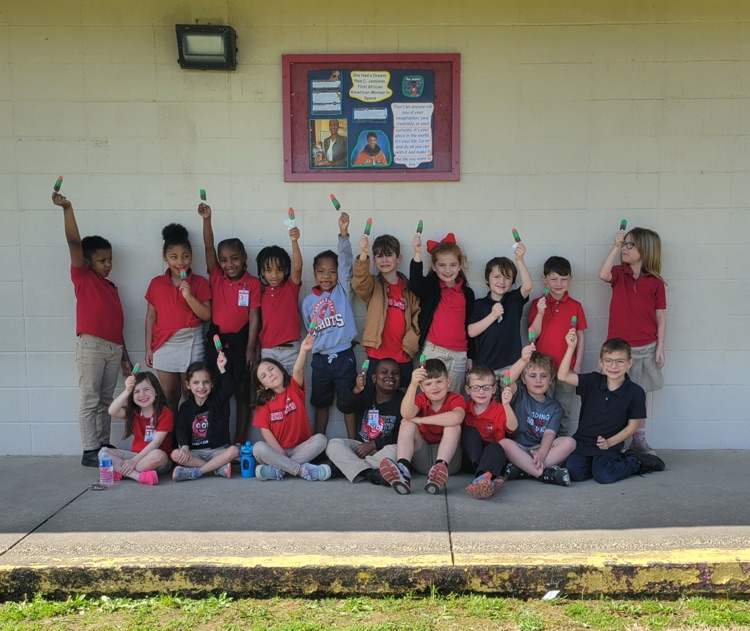
Use a schedule to make responsibility routine
To help your child finish schoolwork and chores without needing frequent reminders, create a responsibility routine. Write down a schedule with specific times for schoolwork and studying, reading, chores and free time. If you stick to the routine, your child will know it's necessary to finish that math worksheet, set the table and lay out clothes for tomorrow before playing. Have your child check off each task after completing it.
https://tpitip.com/?16bK17376
To help your child finish schoolwork and chores without needing frequent reminders, create a responsibility routine. Write down a schedule with specific times for schoolwork and studying, reading, chores and free time. If you stick to the routine, your child will know it's necessary to finish that math worksheet, set the table and lay out clothes for tomorrow before playing. Have your child check off each task after completing it.
https://tpitip.com/?16bK17376
We are thrilled to announce the Spring 2026 Honors Performance! Come out and support our incredibly talented student musicians and vocalists from across the district as they take the stage for this special event.
Event Details:
📅 Date: Saturday, February 21, 2026
🕙 Time: 11:00 AM
📍 Location: Opelousas Sr. High School
🎟️ Admission: FREE ENTRY for all guests!

We want to ensure all of our families have the upcoming holiday dates on their calendars!
St. Landry Parish schools will be CLOSED for the Mardi Gras holiday on the following dates:
📅 Monday, February 16
📅 Tuesday, February 17
📅 Wednesday, February 18
Students will return to school on Thursday, February 19.
St. Landry Parish schools will be CLOSED for the Mardi Gras holiday on the following dates:
📅 Monday, February 16
📅 Tuesday, February 17
📅 Wednesday, February 18
Students will return to school on Thursday, February 19.

